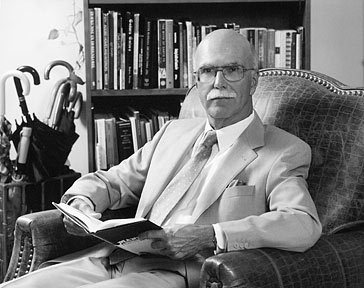What is Spiritual Direction?
A brief summary from Richard Foster:
1. Spiritual direction is an interpersonal relationship in which we learn how to grow, live, and love in the spiritual life.
2. Spiritual direction involves a process through which one person helps another person understand what God is doing and saying.
3. Discernment is a crucial gift in the work of spiritual direction.
4. In spiritual direction there is absolutely no domination or control.
5. The spiritual director/mentor/pastor guides another in spiritual things through the spiritual world by spiritual means.
6. God has ordained that there be spiritual directors/mentors/pastors among his people. This is the structure of love in practice.
7. Supremely, spiritual directors/mentors/pastors are persons who have a sense of being “established” in God. Otherwise they are too dangerous to be allowed into the soul space of others.
More About Spiritual Direction
Spiritual direction provides an “address” on the house of your life so that you can be “addressed” by God in prayer. When this happens, your life begins to be transformed in ways you hadn’t planned or counted on, for God works in wonderful and surprising ways.
— Henri Nouwen, Spiritual Direction: Wisdom for the Long Walk of Faith
While the phrase “spiritual direction” may sound a bit lofty, it is simply a relationship through which one person assists another in attending to the presence and call of God in all of life. Though not always called by this name, spiritual direction has been a vital ministry in many streams of the Church for hundreds of years.
Spiritual direction is for anyone yearning for God. Sometimes this desire appears as a sense of longing for something greater or a sense of discontent with the status quo. For others this pining is more focused, rising from a clear understanding that a sense of God’s presence is missing from particular parts of life.
Of course, an underlying assumption and basis for spiritual direction is that God — Father, Son, and Holy Spirit — is actively drawing us into the Eternal Presence. God is the one, true “director,” working constantly, actively, powerfully in the very midst of our ordinary, everyday routines and life circumstances. A spiritual direction relationship is one way to help us pay attention to this Divine work. It interrupts our typical routine long enough to help us notice God’s wooing of us and become more deeply aware of God’s presence with us.
The spiritual direction relationship includes a director and directee, with the director often being called a “spiritual director.” While different directors have different approaches to their practice, typically she takes an active/passive role, simply creating the environment for the direction to take place. The director intentions to do more listening than talking, asking leading and, sometimes, probing questions as needed and appropriate. Times of silence are apropos and welcomed. There is very little actual direction given as this is commonly understood. Rather, the spiritual director convenes a conversation during which a direction will be determined by the directee and director together, co-laboring with God. Both directee and director explore together what God might be doing in the areas being discussed.
While the lines may be blurry at times depending on the style of the spiritual director or present circumstances, spiritual direction is different from pastoral counseling. People usually enter a counseling relationship because something is wrong with life. Counseling tends to be crisis-oriented or problem-driven. Solving particular problems or handling specific crises is not the goal of spiritual direction. The spiritual direction relationship takes the long view. It looks for how God is working, calling, prodding, and inviting us to new ways of being with Jesus in the midst of our circumstances. It focuses on building an intimate relationship with God over a lifetime, through all the problems, crises, joys, and blessings.
Other items for consideration include:
- Direction sessions are usually one hour in length, once per month and can be held anywhere conducive to intentional conversation — a quiet office, coffee house, or park bench.
- The director may or may not give the directee a spiritual practice to work with between sessions.
- There is a place for group spiritual direction, but the classical model and that in mind here is the one-to-one interaction between director and directee.
- Many spiritual directors will discourage the relationship extending beyond the direction sessions so that they might remain objective and not get caught up in personal feelings and opinions.
On looking for a spiritual director, many retreat centers and monasteries can help you find one. Governing offices of more liturgical church bodies may have lists of directors in your area. Please be discerning as you choose a director. Your first time together should be more of an interview than a session for direction, with both directee and director listening to see if they are a good fit for one another.




